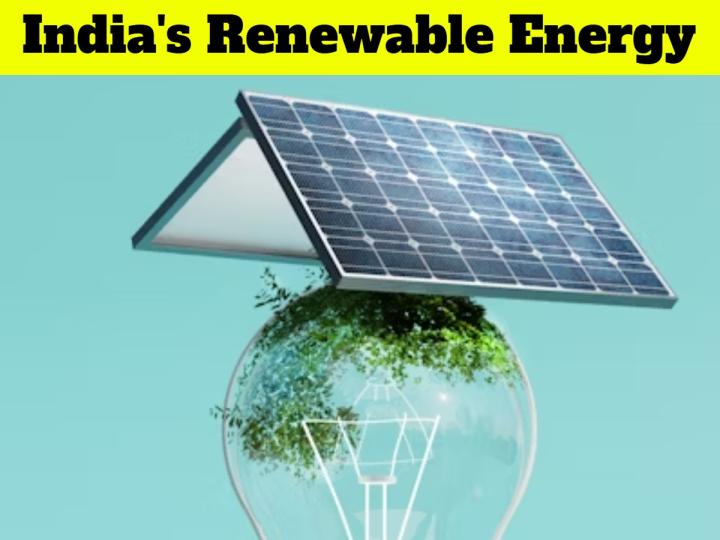
India stands at the center of a global clean energy transformation. As climate change intensifies and fossil fuel dependence becomes increasingly unsustainable, the nation is embracing renewable energy and green technology startups as the engines of economic growth and environmental stability.
By 2025, India aims to generate 50% of its total power from renewable sources, marking one of the most ambitious clean energy goals in the world. What makes this transition remarkable is the role of startups — innovative young companies that are redefining how energy is produced, consumed, and conserved.
From solar-powered microgrids lighting up rural villages to AI-driven energy platforms optimizing electricity use in cities, India’s green tech movement is laying the foundation for a cleaner, more sustainable future.
Over the past decade, India has made remarkable strides in renewable energy development. With government initiatives like the National Solar Mission, Production-Linked Incentive (PLI) schemes, and FAME (Faster Adoption and Manufacturing of Hybrid and Electric Vehicles), the country is encouraging clean innovation at every level.
Solar Energy: India has become one of the top three solar energy producers globally, with massive solar parks in Rajasthan, Gujarat, and Karnataka.
Wind Power: States like Tamil Nadu and Maharashtra are driving large-scale wind projects, contributing significantly to India’s renewable mix.
Hydrogen and Bioenergy: Emerging technologies like green hydrogen and biofuel startups are gaining traction for industrial and transportation use.
These efforts are backed by strong policy support, foreign investments, and increasing awareness among consumers and businesses alike.
India’s green transformation wouldn’t be possible without the creativity and agility of its startups. From energy storage and electric vehicles to recycling and climate analytics, startups are providing real solutions to global sustainability challenges.
Startups like ZunRoof, Loom Solar, and Oorjan are making rooftop solar more accessible and affordable for homes and small businesses. In the wind sector, innovations in smart turbine monitoring and predictive maintenance are improving efficiency and uptime.
With the electric vehicle (EV) boom underway, startups such as Exicom Power Solutions, Battery Smart, and Log9 Materials are building advanced lithium-ion batteries and swap station networks that address range anxiety and charging delays.
The EV revolution is one of the fastest-growing green tech segments.
Companies like Ola Electric, Ather Energy, and BluSmart Mobility are reshaping India’s transportation landscape with electric scooters, fleets, and public charging infrastructure.
📌 Case Study: BluSmart Mobility
In 2024, BluSmart, India’s first all-electric ride-hailing startup, expanded its fleet to 10,000 EVs across Delhi-NCR and Bengaluru.
By partnering with renewable energy providers, the company reduced 25,000 tons of CO₂ emissions within a year — proving that sustainability can be both profitable and scalable.
Green tech is not just about hardware. Companies like Atomberg Technologies and ReNew Power are integrating AI and IoT into energy systems to analyze consumption, predict demand, and minimize wastage — helping cities and industries operate more efficiently.
Green technology is not just an environmental necessity — it’s a national strategy that touches every aspect of India’s growth story.
By investing in renewable energy, India reduces its reliance on imported fossil fuels, saving billions in foreign exchange and strengthening national security.
India has pledged to achieve net-zero emissions by 2070. The widespread adoption of green technology is the cornerstone of this commitment.
From smart grids and green buildings to EV charging networks, cities across India are adopting clean technology to enhance sustainability and quality of life.
In rural India, solar and wind microgrids are powering homes, schools, and healthcare centers — driving inclusive growth and reducing energy poverty.
India’s green startups are not just domestic players — they’re stepping onto the global stage.
Thanks to cost-effective innovation and scalable business models, India is emerging as a global supplier of affordable sustainability solutions.
Indian solar companies are exporting panels and technology to Africa and Southeast Asia.
EV battery innovators are collaborating with European automakers.
Clean energy SaaS startups are offering AI-based optimization tools worldwide.
This expansion strengthens India’s position as a hub for clean tech innovation and showcases the country’s potential to lead the global renewable energy transition.
The financial ecosystem is also shifting in favor of sustainability. In 2025, green tech startups in India raised record funding, attracting venture capital, ESG (Environmental, Social, and Governance) funds, and international investors.
Government support — through tax incentives, public-private partnerships, and infrastructure subsidies — continues to encourage long-term investment in clean energy.
Together, policy and private capital are making sustainability a serious business opportunity, not just a social responsibility.
India’s green tech journey is only just beginning. Over the next decade, we can expect major transformations across multiple sectors:
EV adoption expanding into smaller towns and rural regions
Green hydrogen emerging as a mainstream fuel alternative
AI-powered climate forecasting driving better energy management
Circular economy models encouraging recycling and reuse in industries
This powerful convergence of technology, entrepreneurship, and sustainability is setting the stage for India to become a global green powerhouse.
India’s green tech revolution is more than an environmental initiative — it’s a blueprint for sustainable economic growth. By merging the strengths of startups, government policy, and global investment, India is proving that the next big innovation wave lies in clean energy.
For investors, entrepreneurs, and policymakers, 2025 is the year to bet on India’s renewable energy and sustainability ecosystem.
Because the nation that leads in clean technology today will lead the global economy tomorrow.
1️⃣ India’s 5G-Driven Smart Cities 2025: Building the Future of Urban Living
2️⃣ India’s Data Center Boom 2025–2026: Powering Cloud, AI & Digital Transformation




